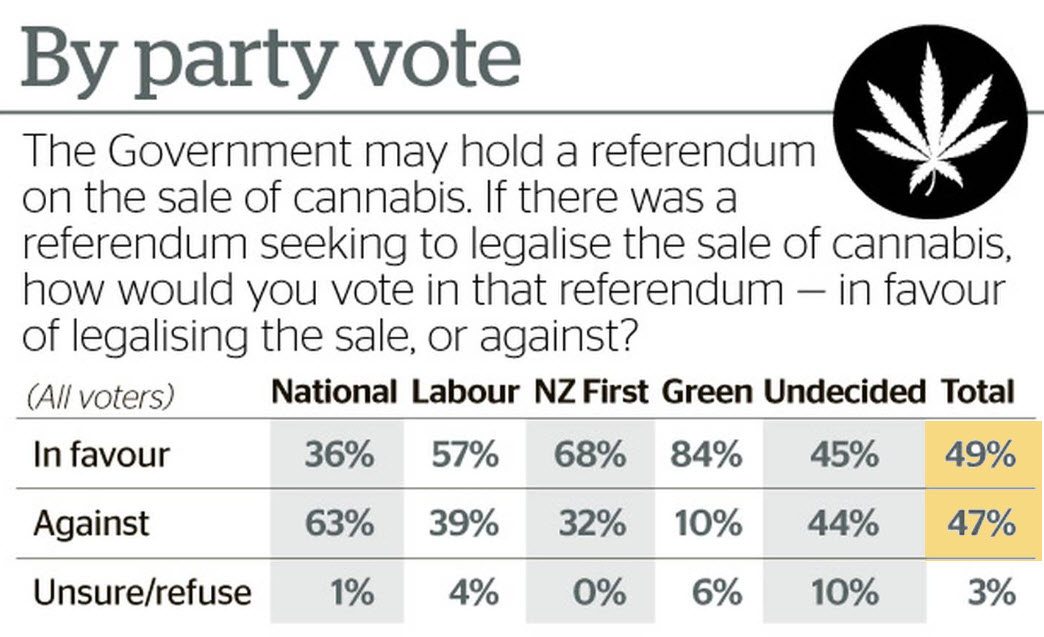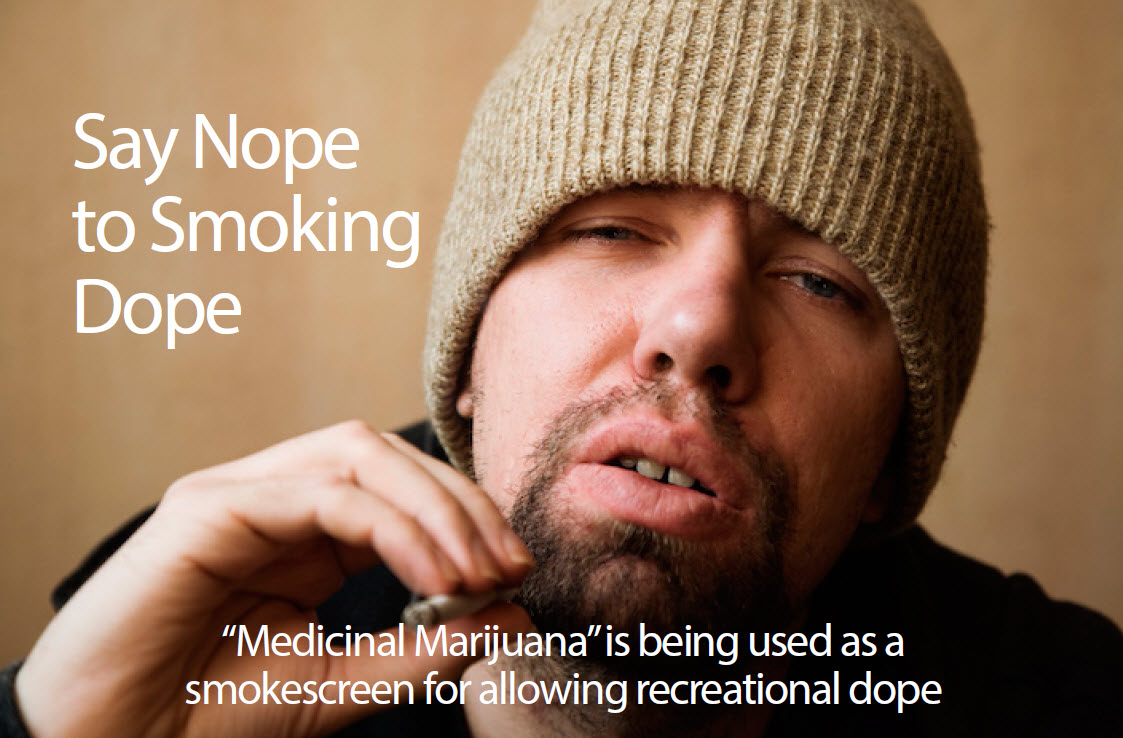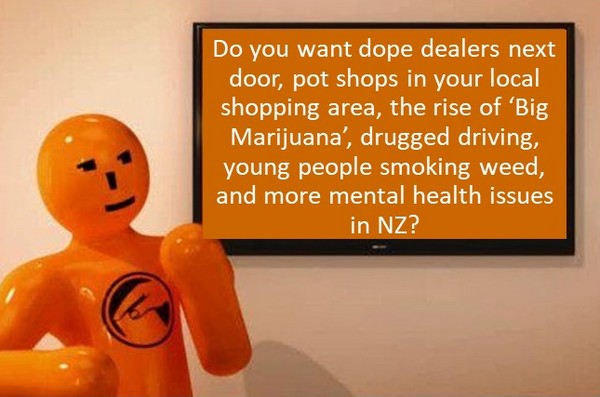Bob McCoskrie: Move Over Big Tobacco, Here Comes Big Marijuana
3 August 2018
Recent polling of New Zealand’s view on marijuana laws has been used to claim that there is widespread support for marijuana and that it’s time to liberalise the laws. The polling showed that approximately a third of respondents want personal cannabis use legalised, a third want it decriminalised, and a third want it to remain illegal.
 An independent 1NEWS Colmar Brunton poll just last year showed New Zealanders appear to be almost equally divided over liberalising cannabis laws. And further down the latest polling was the inconvenient truth that if a referendum was held today on legalising recreational marijuana, neither side could have claimed a victory.
An independent 1NEWS Colmar Brunton poll just last year showed New Zealanders appear to be almost equally divided over liberalising cannabis laws. And further down the latest polling was the inconvenient truth that if a referendum was held today on legalising recreational marijuana, neither side could have claimed a victory.
One of the questions the pollsters should have included is – what’s the difference between decriminalisation and legalisation? As we have learnt from Oregon, Alaska and Colorado, decriminalisation is simply a stepping stone to full legalisation.
And does ‘medicinal’ marijuana actually deliver, safely and effectively. And in what form?
But this is part of the ‘smokescreen’ being put up by supporters of marijuana.
As Australian ethicist Dr Gregory Pike says: “Changing the image of cannabis by promoting it as medicine is powerful. There doesn’t need to be much nuance in the idea that medicines are good and abstracted from that nasty business of “illicit drugs”. The latter wreck lives whereas the former heal people. The image change gets into the collective consciousness and people start to think differently, gradually allowing a medical paradigm to overtake even strong contrary evidence of harm.”
In 1979, NORML admitted “We’ll use medical marijuana as red-herring to give marijuana a good name”.
Of course, a new business market is all very exciting – especially one based on addiction. Growers will want to sell marijuana with increased potency because it’s more addictive. With increased potency comes increased health risks, greater likelihood of addiction, and the potential gateway in to other and often more harmful drugs.
It remains highly ironic that at the same time as we tear the labelling off cigarette packets, price them out of existence, and ban them from being smoked within breathing space of any living creature, supporters of marijuana are peddling the same myths that we believed for far too long about tobacco – that marijuana is harmless.
 Past chair of the NZMA Dr Stephen Child exposes the paradox that New Zealand finds itself in right now. “How can we tout ‘Smokefree 2025’ while we discuss legalising an inhaled product with more than 100 harmful substances?”
Past chair of the NZMA Dr Stephen Child exposes the paradox that New Zealand finds itself in right now. “How can we tout ‘Smokefree 2025’ while we discuss legalising an inhaled product with more than 100 harmful substances?”
Massey University drug researcher Dr Chris Wilkins warned; “If you’re using high potency, using daily or if you’ve a history of mental illness or drug addiction it can have serious health problems bringing on mental illness or further addiction.”
Could our current mental health services cope? They can’t even cope now.
But here’s a warning based on experience.
A Columbia University study, published in the journal JAMA Psychiatry last year, found that marijuana use and marijuana use disorders – in which people use the drug in unhealthy or abusive ways – increased at a “significantly greater rate” in states with medical marijuana laws than in states without the laws. Researchers said that these laws seem to send a message that use of this drug is safe and acceptable in some way.
Two research reviews just published in Annals of Internal Medicine examined 27 previously published studies on this topic, but they found only low-quality evidence that cannabis may help nerve pain, and this wasn’t for smoking pot, it was for oral mixtures sprayed into the mouth.
And a study released this month in Lancet Public Health, one of the largest and most in depth studies done on the drug’s medical use, found cannabis does not cut chronic pain, and users seem to suffer higher levels of anxiety overall.
It is also important to note that lobbyists like the Drug Foundation want all drugs decriminalised – including methamphetamine, cocaine and heroin.
This current campaign around marijuana is just the first step.
But UK commentator Ross Clark says “The pro-drug lobby likes to quote Portugal at us… because it counts on us not knowing what actually happens to drug-users in Portugal and hopes that we will confuse the words ‘decriminalised’ with ‘made legal’. The latter is what metropolitan liberals really want, not because they are especially concerned with the health of drug addicts on distant council estates but because they rather like using drugs themselves.”
Dr Manuel Pinto Coelho, President of the Association for a Drug Free Portugal, sends a clear warning: “There is now in Portugal a trivialisation… Decriminalisation in Portugal was not a blessing.”
 Liberalising marijuana laws and empowering Big Marijuana is the wrong path if we care about public health, public safety, and about our young people.
Liberalising marijuana laws and empowering Big Marijuana is the wrong path if we care about public health, public safety, and about our young people.
Drug use is both a criminal and a health issue. There is a false dichotomy that criminal sanctions haven’t worked so we should ditch them all together and we should focus only on education and health initiatives. We should maintain both.
Kevin Sabet from Project SAM (Smart Approaches to Marijuana) states: “The regulation of (legal) alcohol and tobacco has been an utter disaster from a public cost and public-policy point of view. We’ve never regulated those drugs in a responsible way. Lobbyists and special interests own the rule-making when it comes to these drugs…. do we really want to repeat history once again?”
Here’s some questions for the Drug Foundation’s next poll.
- Are you aware of the health risks including the effect of marijuana on cognitive ability, cardiac function and psychosis?
- Do you want marijuana plants next door to your family home in view of the children?
- Are you happy with ‘tinnie houses’ on your street corner and in your local shopping areas? (Colorado, for example, has more marijuana businesses than McDonalds and Starbucks combined.)
- Are you happy with stoned drivers on the road, and driving heavy machinery?
- As a taxpayer, are you happy to fund the ongoing costs of marijuana legalisation in public awareness campaigns, law enforcement, healthcare treatment, addiction recovery, preventative work, and education programmes to try and protect teenagers & young adults.
- Are you happy for Big Marijuana to replace Big Tobacco?
No, don’t let New Zealand go to pot. We should have learnt our lesson from tobacco.
The grass is not always greener.
Bob McCoskrie is National Director of Family First NZ






